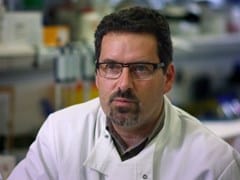
All children with cancer should have the genetic profile of their tumour comprehensively analysed when being considered for new treatments, say leading UK childhood cancer experts.
Leading scientists and doctors are calling for a major upscaling in genetic sequencing for children with cancer, to understand patients’ disease better and help direct them to clinical trials that could offer more precise treatment. They also believe this genetic information could help drive the discovery of new targeted treatments for childhood cancers.
NHS England plans to introduce an NHS Genomic Medicine Service shortly to begin putting in place the resources and infrastructure to expand access to sequencing.
Experts at The Institute of Cancer Research, London, and The Royal Marsden NHS Foundation Trust want the NHS to dramatically scale up access to genetic sequencing for children, so that doctors can routinely carry out sequencing in children at all stages in their treatment, and especially at relapse.
They say new funding and changes in clinical practice can turn the promise of the NHS Genomic Medicine Service into reality. Their call is being timed for Children’s Cancer Awareness Month, to maximise the chances that governments across the UK will listen.

Professor Louis Chesler
Professor Louis Chesler, Professor of Paediatric Solid Tumour Therapeutics at The Institute of Cancer Research, London, and Consultant in Paediatric Oncology at The Royal Marsden NHS Foundation Trust, said:
“Molecular profiling of children’s cancers will be incredibly useful when it comes to finding new treatments. We may be able to increase the chance of a child responding to treatment by looking for genetic changes in their tumour that can be targeted using existing drugs. If no drugs exist, this will highlight areas for future scientific discovery, which is what drives the development of new, more effective treatments.
“We urgently need to ensure that the infrastructure is in place to analyse all these samples and to return useful information to clinicians that can guide treatment.”
The molecular profile of a child’s tumour, which includes genetic information about the cancer, is currently only assessed in sufficient detail at diagnosis at a few specialist paediatric centres in the UK and, till very recently, very rarely sufficiently studied at relapse. The situation is better in some other parts of Europe and the US.
Around 1,800 children (aged 14 or under) are diagnosed with cancer in the UK each year. Childhood cancer survival has plateaued and an insufficient number of the new targeted drugs that attack cancer-causing genes have been made available for testing in children.
Scientists at The Institute of Cancer Research (ICR) and paediatric oncologists at The Royal Marsden argue that it is important to obtain genetic information at relapse even if it has already been obtained at diagnosis, as many tumours evolve and become more aggressive and resistant to treatment over time, and new mutations may arise.
The plea for more funding and a change in clinical practice comes just days after a group of expert centres in London unveiled plans for a ‘powerhouse’ of cancer research.




